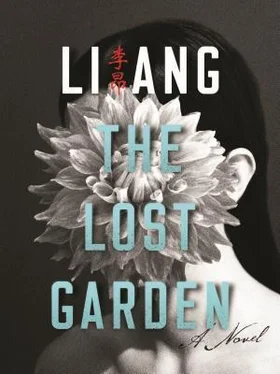WHAT SEPARATES US FROM CHINA
WHAT SEPARATES US FROM CHINAis more than spatial, temporal, even cultural distance; it is more like a gulf between hearts.
My ancestors once lived in China, which they called Tangshan, a place with a highly developed culture, where people wore silk and satin and used fine china.
When I was a child, my father taught me in Taiwanese to recite Chinese poetry. When Taiwan was under Japanese rule, he called himself a Han; for a while he even admired Chairman Mao, whom he considered to be the savior of the laboring masses. But we were given a drastically different view of China from those who arrived in Taiwan in 1949. The tangled emotional ties, grievances, and resentment have never ceased to exist, even now.
In the oppressive climate of White Terror during Taiwan’s four-decade-long martial law era, we diligently worked at piecing together the history of Taiwan of the sixteenth and seventeenth centuries, when the island was frequented by competing merchants from Japan, China, the Netherlands, and Spain, all of which treated Taiwan mainly as a site for trading silk and silver.
This is a promised land that has enabled me to construct a story of the Zhu family, whose ancestors were pirates, and whose curse was passed down through the generations, until its eventual realization.
I have spent years with friends in Taiwan’s opposition camp. Comparatively speaking, Taiwan has been luckier than most countries, for it became democratic without a bloody revolution, an accomplishment worthy of making all Chinese proud. Democracy and freedom have made it possible to write about taboo subjects, which is critical for writers like me. But the key is to write a good novel, a work that can withstand the passage of time.
Things change with time, but the issue of national identity explored in this novel exists not only in the past, but in the present, and in the future as well. It is an eternal polemic, since it originates from the gulf between hearts.
Whatever separates us from China, and other related issues, has always been the heart, the gulf between hearts.
LI ANG
IN THE EARLY DAYS OF 2015
PUBLISHED IN 1990, three years after the lifting of martial law in Taiwan, The Lost Garden was the first full-length novel to re-create in fictional form the White Terror Era, reference to which was a political taboo for more than four decades. Showcasing Li Ang’s talent to convey poignant insights through well-crafted details and innovative narrative techniques, the novel also marks a turning point in her writing career, expanding her scope from a predominantly feminist approach to increasingly multifaceted portrayals of contemporary Taiwan. The novel has attracted considerable scholarly attention in Taiwan and elsewhere since its publication. A French translation has been in print since 2003; now an English version is finally available for a broader audience.
The garden ( yuan ), with its multitiered metaphoric and symbolic role, has been the central focus of scholars who have analyzed and written about the novel. “ Mi ,” the first word in the Chinese title, has been variously interpreted as “strange,” “mystifying,” “labyrinthine,” and more. After consulting with the author, I have chosen “lost” to signify the loss of the garden to its rightful owners during Yinghong’s father’s time. The sense of “loss” is further conveyed in the second strand of the narrative, in which decadent and lavish banquets are a manifestation of an island lost in materialism. In addition, “lost” hints at how individuals became lost in the garden, thereby encompassing the mystifying sense of a labyrinth suggested by scholars. During the translation process, I have striven to adhere as closely as possible to the tone, the sentence structure, and the images of the original text. The Lost Garden is narrated in a semiformal language and quasiclassical style, which I have attempted to duplicate in my rendition. Words in languages other than Chinese are in italics throughout the novel.
The translation and publication have been made possible in part by a translation fellowship from the National Endowment for the Arts and a translation grant from the National Museum of Taiwan Literature. I am grateful for the encouragement of Jennifer Crewe, director of Columbia University Press, which has published a large corpus of fiction from Taiwan. I thank the two anonymous readers for their meticulous checking of the translation. Rather than supply footnotes, as they recommended, I have provided explanations and clarifications in the text where appropriate. The term waishengren , literally, those from outside the province (of Taiwan), commonly refers to residents who emigrated from China to Taiwan at the end of the civil war in 1949. I recommend Joseph Allen’s Taipei: City of Displacements to those interested in learning more about Taiwan’s capital city, and A New Account of Tales of the World , translated by Richard Mather, for further reading of the text Yinghong’s father consulted.
Howard Goldblatt read many versions of this translation and offered considerable editorial suggestions, which merits listing him on the cover. I thank my old friend, Li Ang, a supremely gracious writer and a delightful author to work with, for her timely assistance in responding to queries and for assisting in the application for a publication grant from the National Museum of Taiwan Literature.
SYLVIA LI–CHUN LIN
BOULDER, COLORADO
IN THE DOG DAYS OF SUMMER, sweltering heat permeates every corner of the Taipei Basin, pressing down on this coastal city with stifling heat and sultry air.
The basin is like a magnet for oppressive heat that smothers the city in clammy dampness, like colorless, odorless foam rubber that fills up and encases the high rises and dense residential districts, as well as the meandering streets, with no prospect of ever leaving. All seems submerged in molasses.
When night falls, the sun loses its power, if only temporarily. An occasional breeze from the surrounding hills might set the stagnant heat in motion, but it feels more like a pot of boiling water that has just been removed from the stove top — water roils on the surface while the steamy heat is buried deep down, stubbornly unmoving.
The heat is interminable. Given the island’s subtropical location, it experiences only moderate differences in temperature from day to night. Heat that takes over the city in the day refuses to back down at night, hovering like a fire-spitting beast regardless of time of day. Over the long summer months, it stays put, persistent and relentless.
Zhongshan District, near the Tamsui River, was dotted with small American-style bars. Lacking neon signs, most were lit up only by streetlights, recognizable late at night by simple English letters burned or carved into ebony wooden plaques.
One of the bars, Red Wood , stood out, for its cursive letters were highlighted by suggestive pink light from the pink-and-green neon sign of the barbershop next door.
It was nearly midnight on a Friday, the beginning of the weekend for foreign-enterprise employees. The bar was half full, with mostly men who, with their loosened ties, were obviously entry-level white-collar workers.
The corner was outfitted with a modified, short Taiwanese-style bar, with stools now occupied by Caucasian customers who were smoking in silence. Unaccustomed to stools, the local Taiwanese preferred to sit with friends at tables.
Читать дальше












